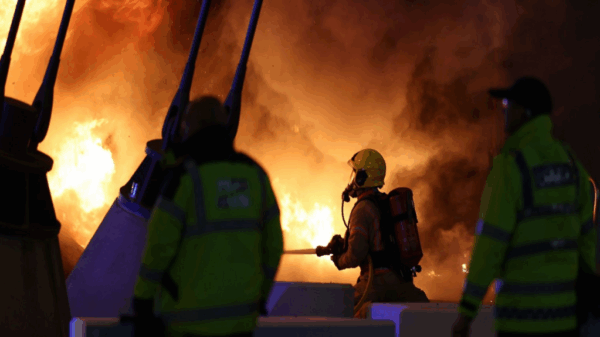BBC News
 PA Media
PA MediaThe UK Supreme Court is to deliver its verdict on how a woman should be defined in law.
The announcement marks the culmination of a long-running legal battle between the Scottish government and a women’s group.
The outcome could have far-reaching implications on how sex-based rights apply across Scotland, England and Wales.
The Scottish government argues transgender people with a gender recognition certificate (GRC) are entitled to sex-based protections, while For Women Scotland argues they only apply to people that are born female.

 PA Media
PA MediaThe ruling, to be announced at about 09:45, is expected to set out how the law should treat transgender people.
It could affect single-sex spaces and services, as well as equal pay claims, maternity policy and sports events.
The legal arguments have come at a time of heated debate on gender issues.
The Supreme Court is deciding on the proper interpretation of the 2010 Equality Act, which applies across Britain.
The law provides protection against discrimination on the basis of various characteristics, including “sex” and “gender reassignment”.

 Getty Images
Getty ImagesJudges in London are ruling on what that law means by “sex” – whether it means biological sex, or legal, “certificated” sex as defined by the 2004 Gender Recognition Act.
The Scottish government says the 2004 legislation is clear that obtaining a GRC amounts to a change of sex “for all purposes”.
Government lawyer Ruth Crawford KC told the court that “a person who has become the sex of their acquired gender is entitled to the protections of that sex”.
Aidan O’Neill KC, representing For Women Scotland, argues for a “common sense” meaning of the words man and woman, telling the court that sex is an “immutable biological state”.
How did we get here?
The legal dispute began in 2018, when the Scottish Parliament passed a bill designed to ensure gender balance on public sector boards.
For Women Scotland complained that ministers had included transgender people as part of the quotas in that law.
After several cases in the Scottish courts, the issue has been sent to the Supreme Court in London for a final ruling.
For Women Scotland has warned that if the court sides with the government, it would have implications for the running of single-sex spaces and services, such as hospital wards, prisons, refuges and support groups.

 Getty Images
Getty ImagesTransgender people have warned the case could erode the protections they have against discrimination in their reassigned gender.
Amnesty International has said that since the Equality Act protects other minority groups, the case could be the “thin end of the wedge” which could undermine other rights.
The Equality and Human Rights Commission – the regulator in charge of enforcing the 2010 act – has called for legal reform as a result of the case.
The Scottish Parliament passed reforms in 2022 that would have made it easier for someone to change their legally recognised sex.
The move was blocked by the UK government, and has since been dropped by Holyrood ministers.
































